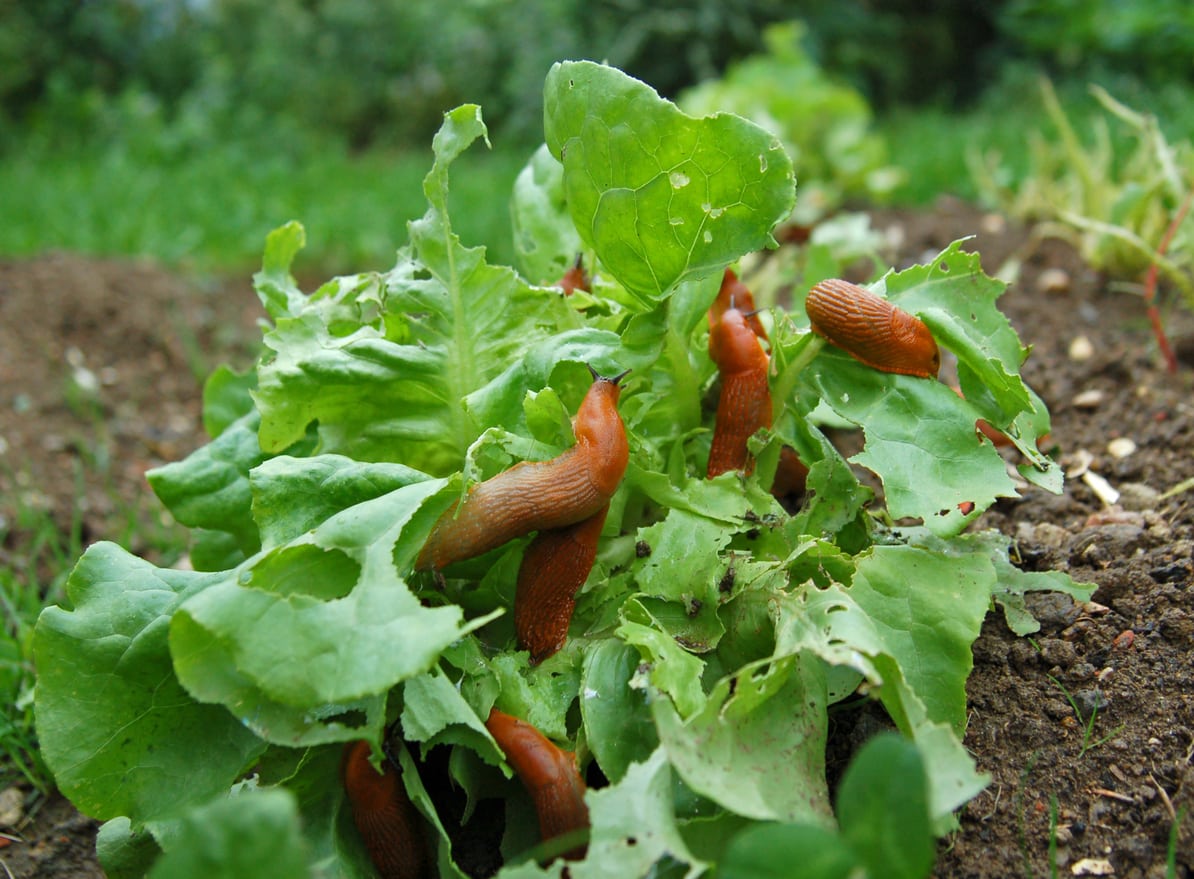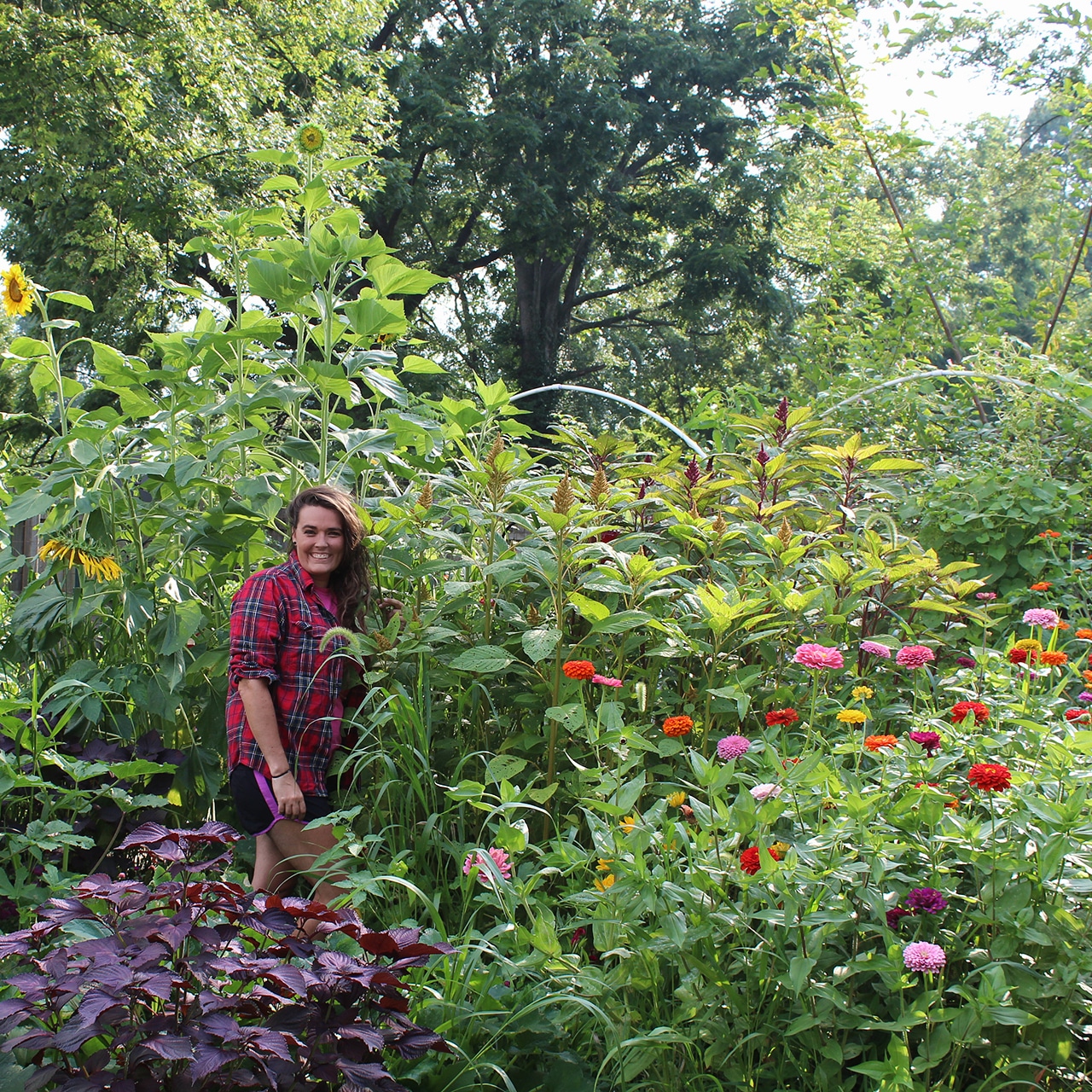Lettuce Snail And Slug Control – How To Solve Lettuce Mollusk Problems
If slimy creatures are eating your lettuce crops at night, control them naturally and safely.


For many gardeners, fresh leafy greens are a vegetable garden must-have. Nothing compares to the taste of homegrown lettuce. Though extremely easy to grow, leafy crops do have one very common issue– damage caused by slugs and snails. Read on for tips about keeping slugs and snails off lettuce plants.
Lettuce Mollusk Problems
The type of slugs and snails you may encounter in the vegetable garden vary depending on where you live. Even though slugs obviously lack shells, both slugs and snails are classified as mollusks. The mollusks use their single "foot" to move within the garden in search of plant matter.
Slugs and snails seek shelter from direct sunlight within the garden and are most active at night and when temperatures are cool. Moisture and shelter are also key components of ideal habitat for them, both of which lettuce provides. With prevention and planning, however, it is possible to grow a crop of slug-free lettuce with little extra effort.
Identifying Slug and Snail Damage
If these mollusks are eating lettuce plants in the garden the signs of their presence should be visibly apparent. In early spring, gardeners may begin to notice oddly shaped holes in the leaves of lettuce plants. The cause of this damage may often be misidentified, as some other pests feed in similar ways. However, both slugs and snails leave behind noticeable "slime" trails. These trails are caused by mucus secreted by the mollusks as they move across the plant. These trails, even when dry, usually have a silvery appearance.
Lettuce Snail and Slug Control
There are a variety of ways, both organic and chemical, in which to rid the garden of slugs and snails. Preventive measures are also a great option for those wishing to take a proactive approach. Removing anything which can be used as shelter is the first step. Avoid using items like cardboard or concrete blocks near areas where you have planted succulent veggies. Slugs are less likely to inhabit your garden when protection from bright sunlight is limited. Keeping slugs and snails off lettuce may also include the following methods of control:
Hand-Picking– While it doesn't sound very appealing, hand-picking is one of the best ways to control slugs and snails on lettuce. Hand picking on a regular basis, daily or weekly, will greatly reduce the number of pests feasting upon your lettuce.
Barriers– Copper barriers are a common deterrent for slugs and snails in the garden. Interestingly, electrical current is generated when the "mucus" of these mollusks comes into contact with copper. Creating a perimeter of copper tape within garden beds may help reduce the issue. Barriers made with diatomaceous earth are also an option. Diatomaceous earth is comprised of the fossilized remains of aquatic diatoms. Diatom skeletons are made of silica, which occurs naturally. The sharp edges of the silica draw oils and fats from the mollusks' bodies, causing them to dry out. As always, be sure to read labels carefully before use. Crushed eggshells can have the same effect.
Gardening tips, videos, info and more delivered right to your inbox!
Sign up for the Gardening Know How newsletter today and receive a free copy of our e-book "How to Grow Delicious Tomatoes".
Baits/Traps– In a pinch, many gardeners have tried setting beer traps for slugs and snails. Since they're attracted to yeast, setting a shallow plate of beer into the garden overnight often captures many of these problematic plant-eaters. You may be able to find molluscidal baits at your local gardening store. Be careful with these, however, as those labeled as metaldehyde-based baits may be toxic to humans, pets, and wildlife. Iron phosphate-based products are generally deemed less toxic. Always be sure to read the product label and properly educate yourself before use.

Tonya Barnett has been gardening for 13 years. Flowers are her passion. She has transformed her backyard into a cut flower garden, which she regularly chronicles on her YouTube channel http://www.youtube.com/@tonyawiththeflowers.
-
 Looking For Plants To Give You The Soft And Fuzzies? Try These 5 Fuzzy Leaf Plant Options
Looking For Plants To Give You The Soft And Fuzzies? Try These 5 Fuzzy Leaf Plant OptionsLovers of texture, drama, silver foliage and tactile plants will adore these special sensory garden additions. These fuzzy leaf plant options will leave you all aglow
By Susan Albert
-
 Get Ready For A Summer Of Hummers! Grow These Full Sun Hummingbird Plants and Flowers
Get Ready For A Summer Of Hummers! Grow These Full Sun Hummingbird Plants and FlowersIf you’re lucky enough to enjoy a sunny backyard, make sure you are maxing out on your pollinator opportunities and grow these full sun hummingbird plants and flowers
By Tonya Barnett